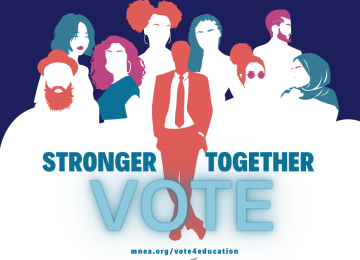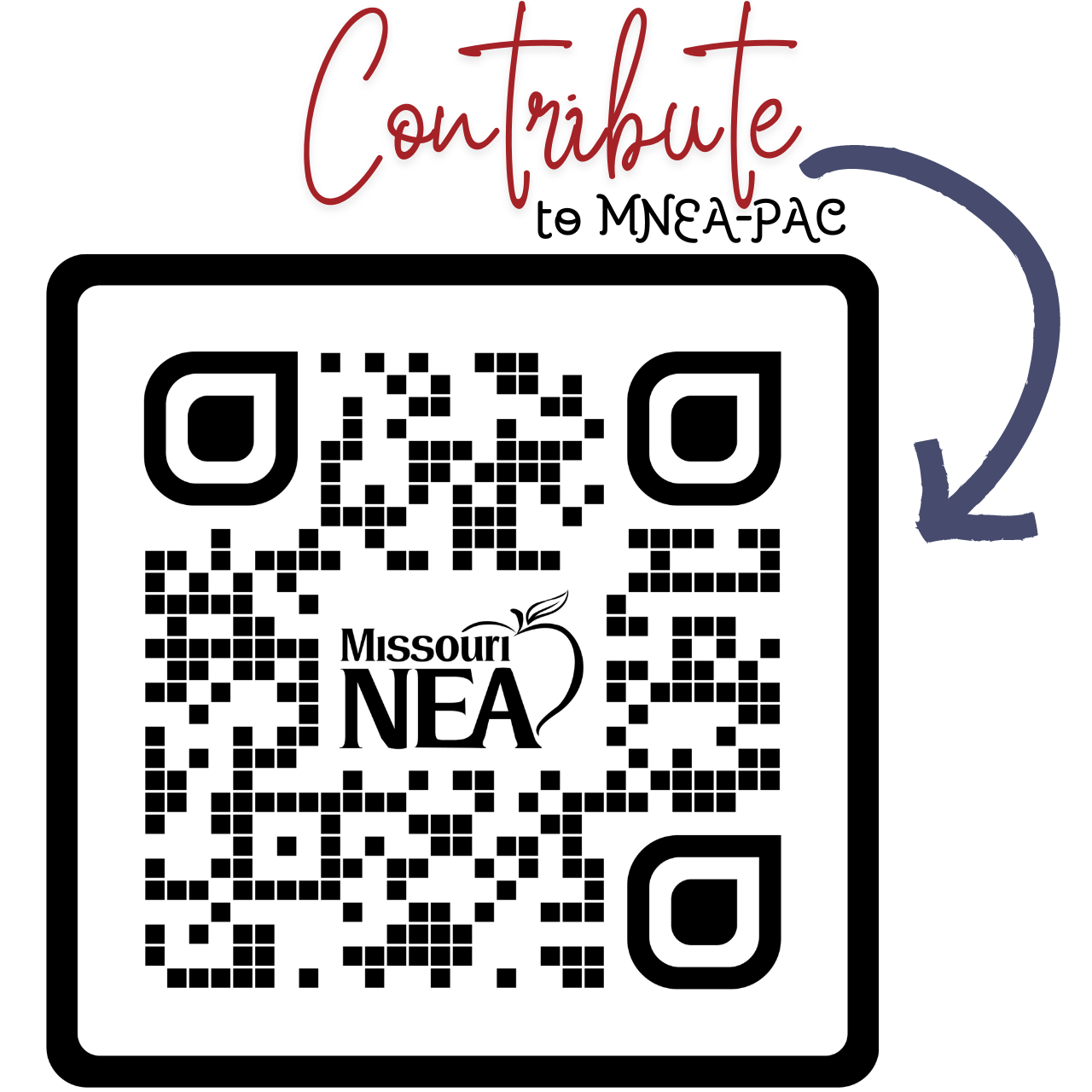Opponents of public education are increasingly using manufactured social issues to discredit public schools and educators. These plots have one purpose: to privatize education and profit from students while pulling classrooms, students, and teachers into unnecessary and unwelcome political rancor.
In this environment, the ballot is important for protecting schools and students. At every level, members need elected officials who are advocates for strong public schools. This means supporting candidates (regardless of political party) who will work to ensure educators have adequate resources and assistance to tackle student learning loss.
The 2024 general election will dictate the future of educator jobs, voucher schemes, and charter schools. With so much at stake, every educator’s vote matters in Missouri. Please join MNEA in choosing candidates who will protect students, teachers, support professionals, and strong public schools.
Important Races for Educators
Apart from the armed services, the education profession is more directly affected by elected officials than almost any other profession. Elected officials determine significant aspects of your daily work life, from pay to planning time to your right to bargain collectively. The state legislature and school boards play an especially salient role.
The Missouri Senate is a critical chamber for Missouri educators. Because senators can filibuster bills, the chamber can stop legislation that would harm MNEA members and the students they serve. For decades, Missouri educators could count on the state senate to support public education. However, the Missouri Senate is changing rapidly. Several years ago, a majority of senators supported public education, with many defending educators' rights to negotiate contracts. Now, fewer senators remain who support public education.
Missouri House elections provide an opportunity to elect new supporters of public education and retain elected officials who are firmly committed to ensuring every student, regardless of ZIP code, attends a well-resourced school. The Missouri House is critical to funding neighborhood schools. Budget bills, which authorize every dollar the state spends (including the state’s share in local school funding), begin in the Missouri House’s influential budget committee. Electing just a few additional supporters of public education to the Missouri House would increase the number of pro-public school elected officials seated on this critical committee.
For detailed information on key races for educators, go to www.mnea.org/vote4education.
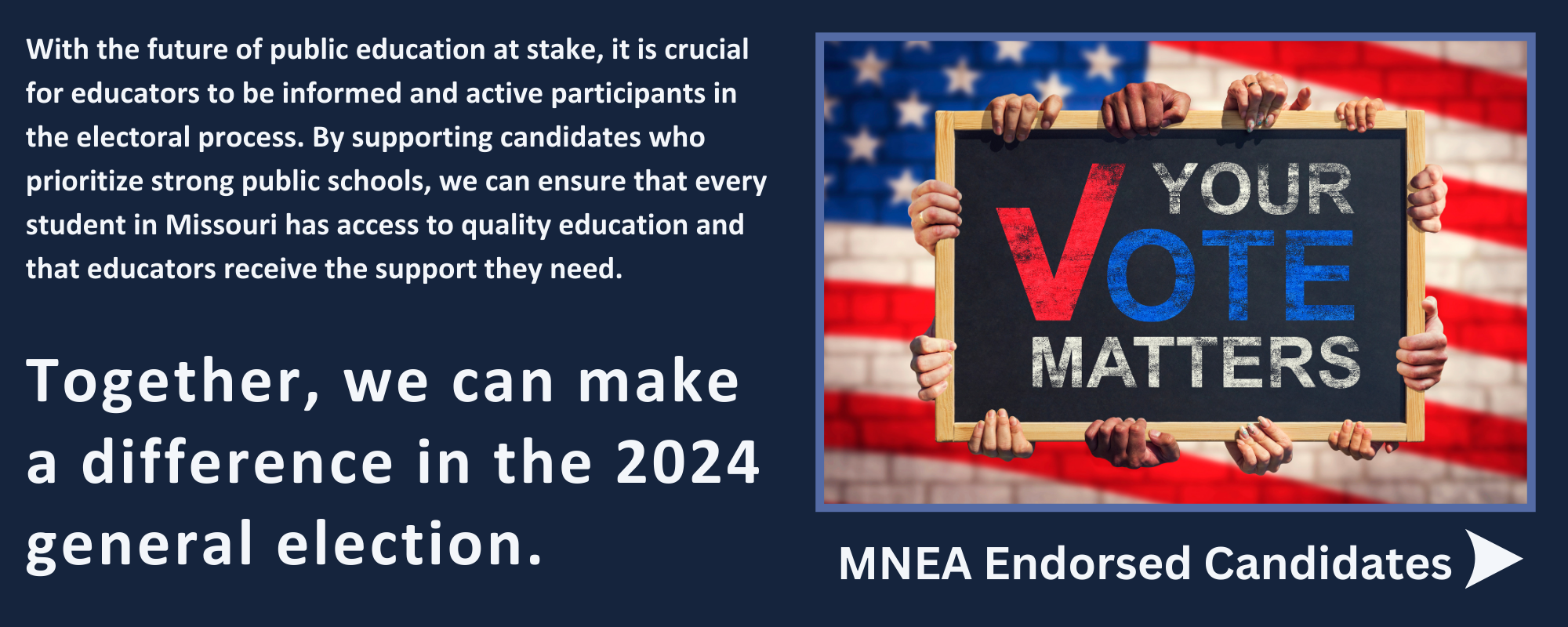
From Schools to Statehouse: MNEA Members Running for Office
Missouri NEA members are stepping up to serve our communities in new ways by running for public office. Bringing a wealth of firsthand experience from our schools, they aim to champion strong public education and advocate for the needs of students and educators alike. Meet the MNEA members who are taking their commitment from our schools to the halls of government.
Missouri Senate
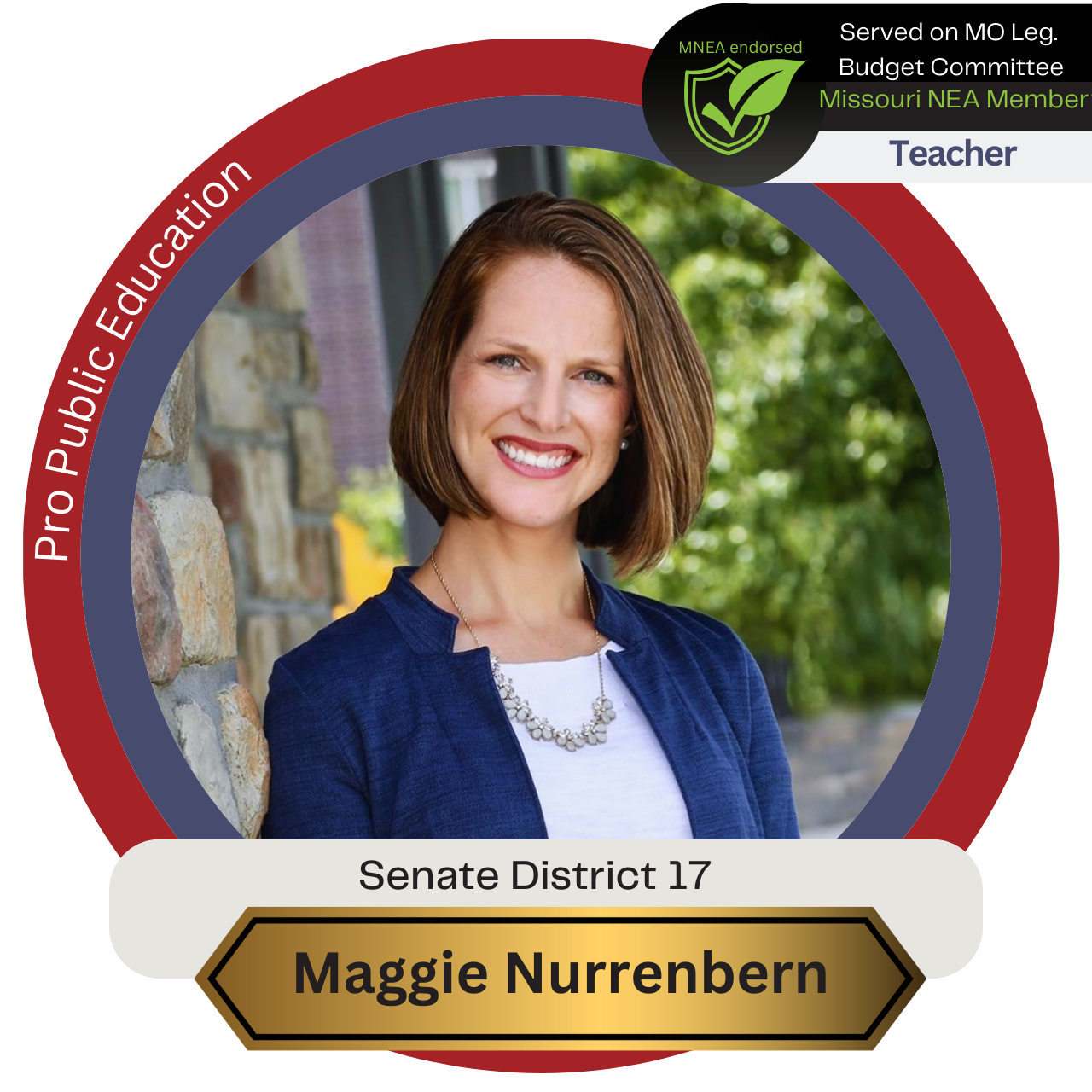
Missouri House of Representatives
 | 
|
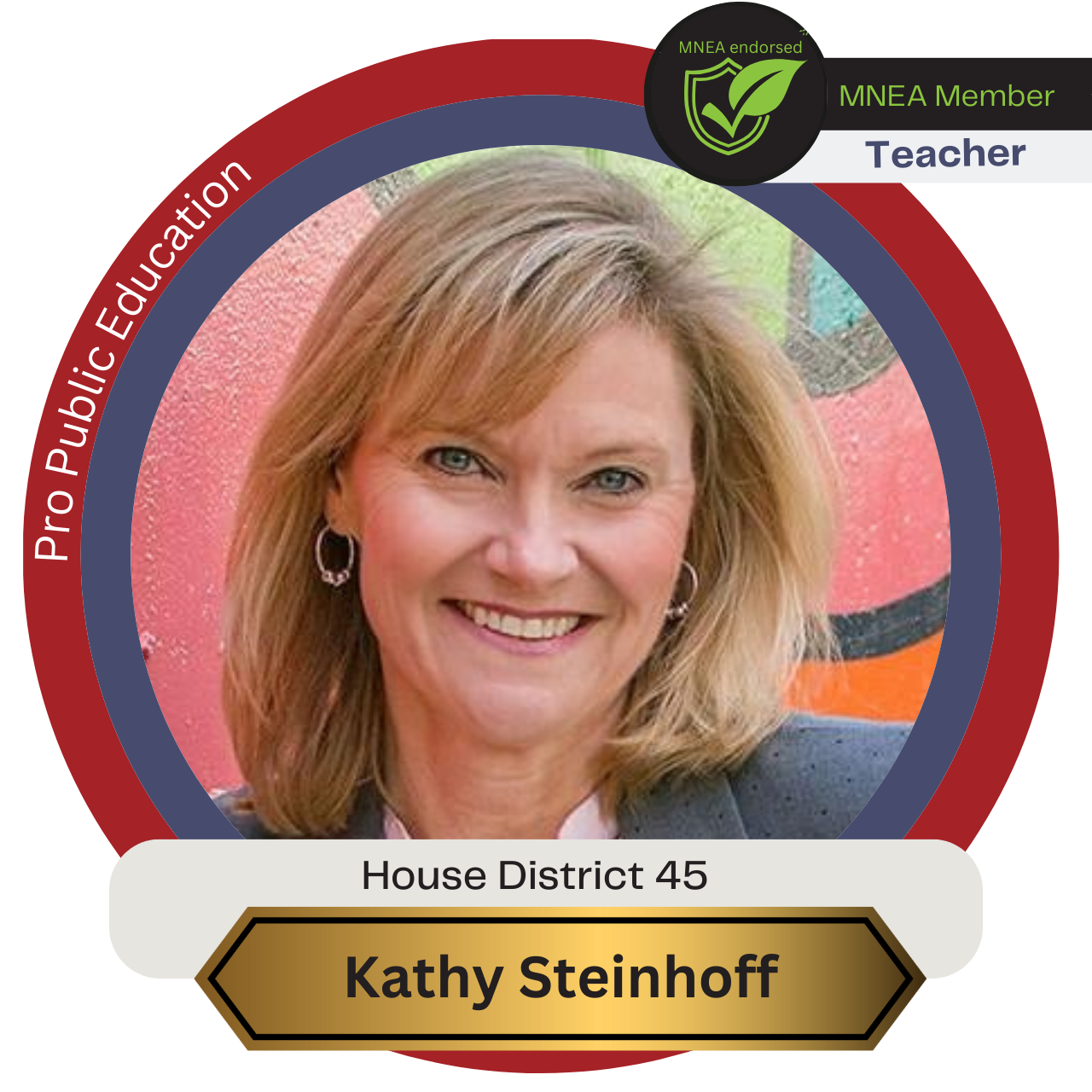
| 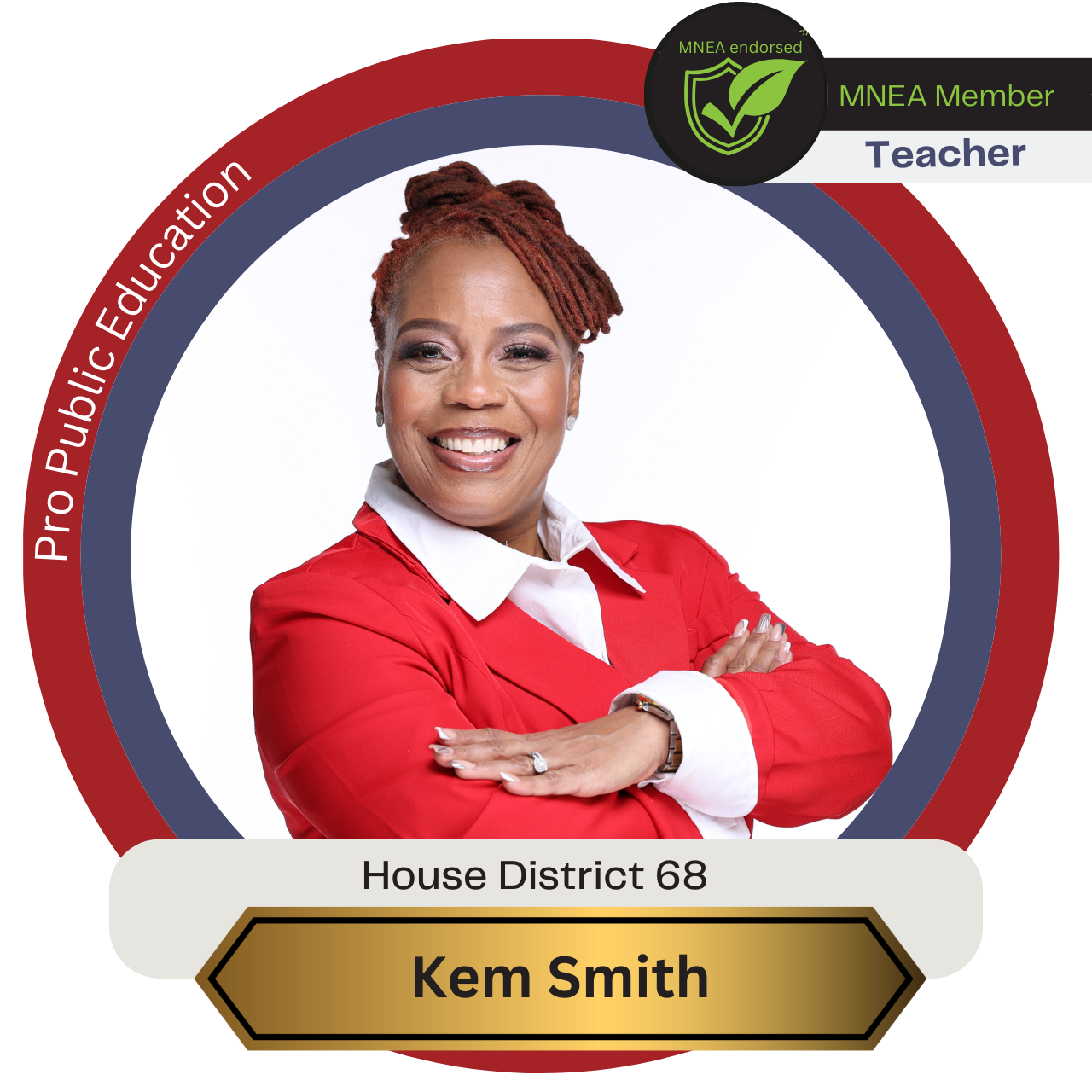 |
 | 
|
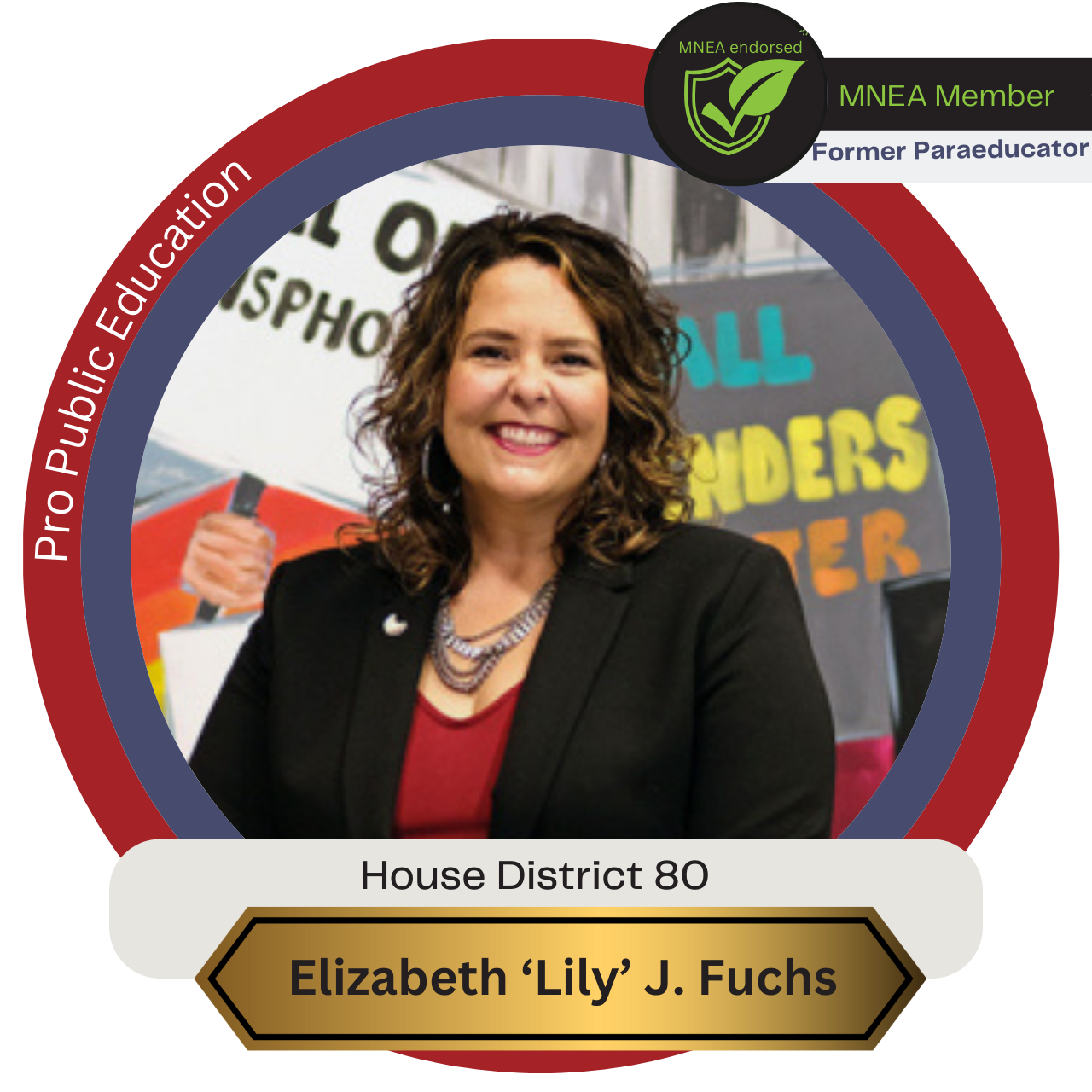 | 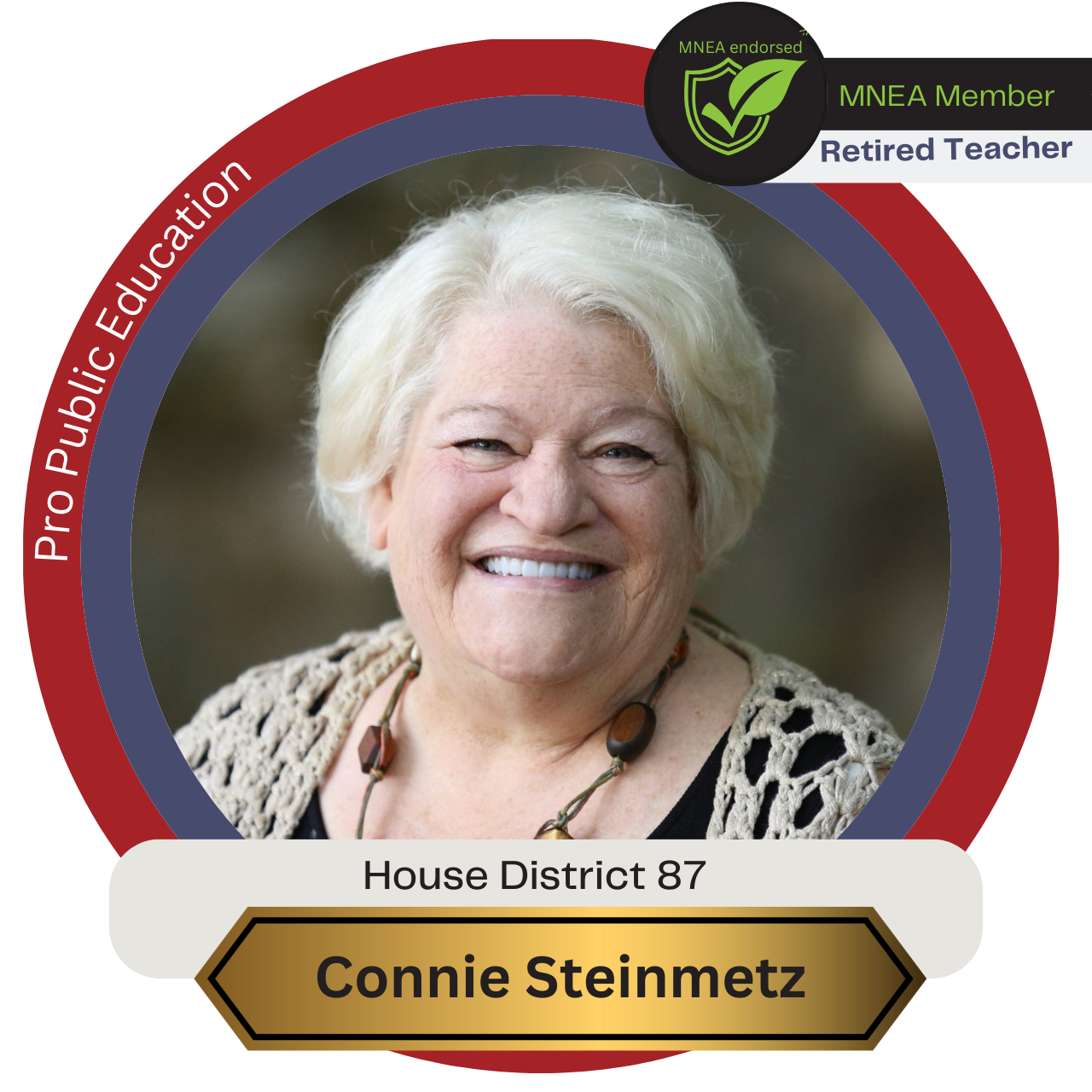 |
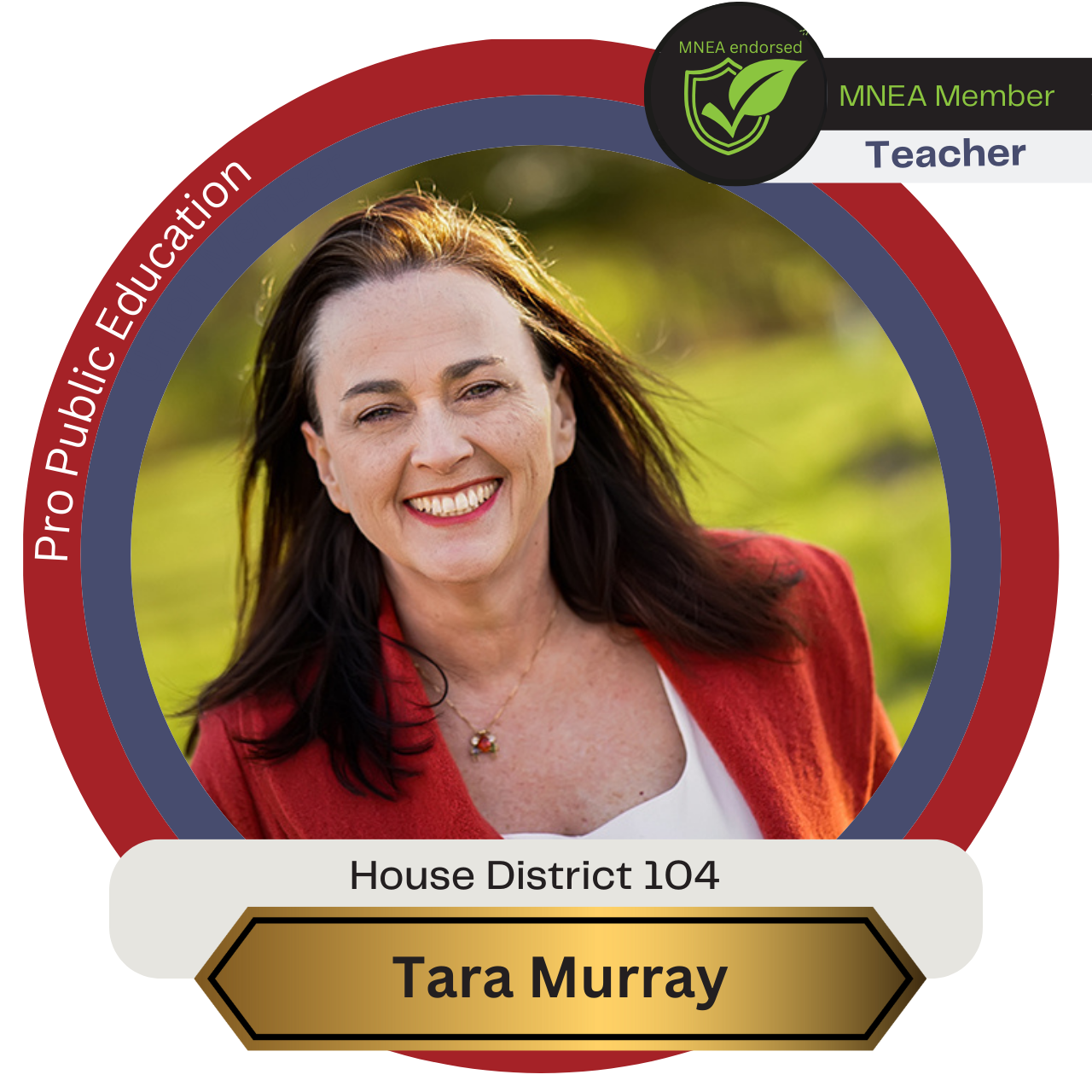 |
MNEA’s Candidate Recommendation Process
Missouri NEA members are Democrats, Republicans, and Independents. MNEA abides by a recommendation process that evaluates candidates based on their values and not party affiliation.
Recommended candidates have values and priorities that closely align with MNEA’s values and resolutions. These values include protecting the rights of students and education employees; ensuring every student has a qualified, caring teacher; and investing in public education to allow students to pursue their dreams.
The recommendation process starts at the local level and requires the commitment of MNEA members to carefully examine the candidates for public office to assess those candidates’ commitment to MNEA’s values. Recommendation decisions are based on written questionnaires, candidate interviews, and an assessment of candidates’ campaign plans and viability.
After filing closes, MNEA Government Relations sends each candidate a questionnaire. Candidates are instructed to return their questionnaires to MNEA headquarters. When the questionnaires are received, a copy is immediately sent to the screening chair. Originals are kept on file at MNEA headquarters.
Screening chairpersons are notified when questionnaires are sent. Then the screening chairpersons begin the final preparation for the interviews with the candidates who return questionnaires.
After conducting the interviews, the screening chair sends the MNEA political director the recommendation decision. The local may choose not to recommend, but if it recommends a candidate, it can recommend the candidate for just the primary or for both primary and general elections.
Local screening committee recommendations are presented to the MNEA Political Action Committee for consideration. A recommendation requires a two-thirds vote of the PAC executive council.
After the MNEA PAC meeting, all candidates interviewed receive a letter from the chairperson of the MNEA PAC. The recommended candidates receive letters notifying them of the recommendations. Candidates who are not recommended receive a letter of gratitude for taking part in MNEA’s recommendation process.


